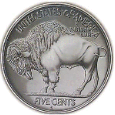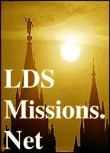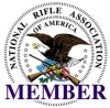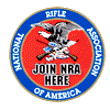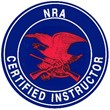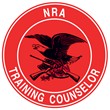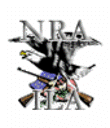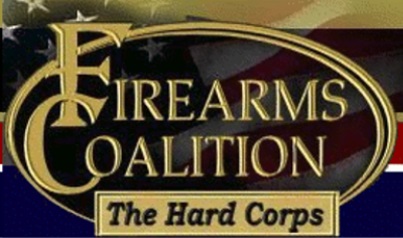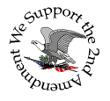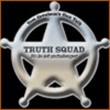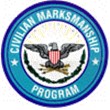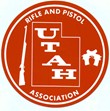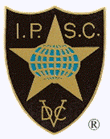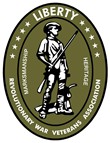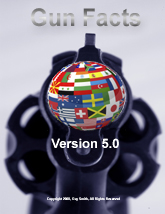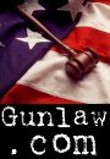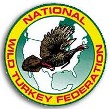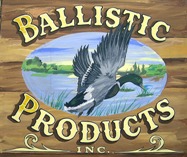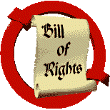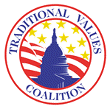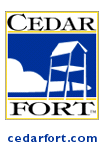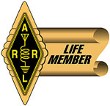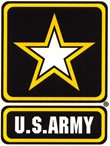|
Today's itinerary included two legs on Frontier Airlines (ANC-DEN-SLC) followed by a final leg on Delta (SLC-CDC). After cheerfully charging me $25 for a second piece of checked luggage, the ticket counter agent told me that I could not check my luggage through to my final destination because the last leg was on a different airline. Consequently, I had to undergo the unreasonable inconvenience of leaving the airport secure area at SLC, claim my luggage, walk to another terminal, check my luggage with Delta, pay another $25 fee for my second checked bag, and go through security again. I suppose Frontier saves a few pennies by not cooperating with other airlines to forward luggage. Due to that short-sighted, anti-customer policy, I will no longer travel on Frontier. My employer's travel department already honors my request to avoid Southwest for exactly the same reason. (5 Jul 2008)
With the soaring cost of fuel, some airlines are imposing new restrictions on the number of free checked luggage. As an airline captain, it appears to me an attempt to move counted bags in the cargo hold to non-counted bags in the passenger compartment. While the actual gross weight of the aircraft will not change, the assumed gross weight (assumed weight of bags plus passengers) used by the airline to calculate weight-and-balance and fuel requirements will change. This is a sinister effort to reduce fuel costs at the expense of aviation safety. I suggest all airlines who limit the number of free checked bags to less than two be immediately required to weigh all checked and un-checked luggage and passengers and crew and use actual weights in all weight-and-balance and fuel computations. (27 May 2007)
Airport security? Hah! It's all for show. X-raying checked luggage, reinforcing cockpit doors (except on freighters), and arming pilots have been the only meaningful improvements since September 2001. Unfortunately, the relatively small portion of pilots who have been armed are shackled in their role. They can only wear the gun inside a locked cockpit of an airplane flown only within the US. The program must immediately be enhanced to allow (or even require) pilots to wear (and use, if necessary) their guns at all times when in uniform throughout the world. I'd even go as far as saying that any law-abiding citizen with appropriate training should be welcome to carry a loaded gun on the airplane. Being a very-frequent flyer and having been in Israel a few times, I've seen what real airport security is. It begins with screeners having an IQ above room temperature (something lacking outside Israel -- especially the US). A reasonably intelligent screener can be trained to look for people with evil intent. The best we can expect from the intelligence of TSA personnel all the way up to the TSA Administrator is to train them to look for fingernail clippers and toothpaste. They can't even spot a .45-caliber pistol 25% of the time! Since September, 2001, only one of the hundreds of TSA civil "servants" checking my ID has looked at me to see if my face matches the photo in my passport! I was sitting at the gate in Seattle one day, looked at my boarding pass and saw a woman's name that bore absolutely no resemblance to my own! I can't fathom how I could possibly have gotten through an ID check with it, but I did. The lady with my boarding pass accomplished the same feat! Don't get me started on how many times I've been infected with athlete's foot walking in stocking-feet on paths trod by millions of other stocking-feet while gloved hands poke at my shoes! (I never had a single case of athlete's foot before the shoe bomber incident.) And, we haven't even begun to talk about the danger posed by an 835,000 pound 747 freighter commandeered by a handful of stowaways (yes, we have stowaways) coming out of those boxes of "cargo" that rarely get inspected! (29 Dec 2007)
Over the past several months, there has been some concern over a worldwide pilot shortage. Lie the weather, everybody talks about it, but nobody seems to be doing anything about it. When I learned to fly back in the mid 70s, one could rent an airplane for $7 with fuel. Add $5 and you get an instructor too! Nowadays, it costs upwards of $100 plus fuel and instructor. It is just too expensive to learn to fly only to get a job that generally requires a 4-year degree, yet starting pay is a mere $2,000 a month. Airline managers simply don't understand what's going on. Nor do they understand (or even want) a market economy. In fact, the airlines want to make things worse by shoving off much of the cost of running the FAA on those poor student pilots, further increasing the cost of a career in aviation through "user fees" similar to those that have destroyed general aviation in Europe. (26 Dec 2007)
HR-1125/S-65 will modify the age-60 retirement standard for certain pilots. This would end a restriction that should never have been made. Standards have long been in place to ensure pilots are mentally and physically fit for the job. Congress must act promptly to require the FAA to immediately terminate any arbitrary age limit on pilots. (13 Jun 2007)
For almost four-decades, the FAA has had a system of efficiently collecting aviation taxes and paying for the management of the safest skies in the world. Under pressure from airlines, the guys with the deep pockets, the FAA wants to change this successful financial structure to one of user fees. As an airline pilot and former military pilot who is concerned about the future of aviation in general, not just the short-term profitability of airlines and bonuses for their executives and lobbyists, Congress must:
Continue to fund the FAA and the air traffic control system through efficiently collected excise taxes.
Reject the Senate Commerce Committee scheme of a surcharge the start of User Fees to fund aviation,
Reject user fees for any segment of the aviation industry,
Reject any movement toward privatizing the air traffic control system, and
Reject any attempt to cut the only tax the airlines pay themselves by eliminating their 4.3 cents per gallon fuel tax. (If money is truly needed to modernize the aviation system, then why give the airlines another huge tax break?)
The Congressional Budget Office, General Accountability Office, and the Department of Transportation Inspector General have all said the tested and proven system of aviation taxes can provide the needed financing for the aviation improvements. The current and proven manner of funding FAA services through the Aviation Trust Fund supported by taxes on aviation users under the jurisdiction of the Senate Finance Committee, not new funds under other Committees, is the best way to pay for aviation improvements. Congress reject any form of "surcharges" or user fees as found in S-1600. They will degrade safety and discourage new pilots from entering the airline employment system. (30 May 2007)
I have been a pilot for over 34 years. My logbook includes 23 years as a military pilot overlapping 21 years as an airline pilot. As an aviator, I am deeply concerned for my safety by the the FAA's desire to fund its operations through user fees. I was an active-duty Air Force pilot when President Reagan fired thousands of air traffic controllers when they went on strike in 1981. As a result of the strike, the capacity of the ATC system was severely impacted. Until capacity was restored, ATC services were provided based on the priority of the flight. Many flights were denied ATC clearances and handling because they were given low priority. I recall that many of those flights often took off anyway, flying into controlled airspace without an ATC clearance. This clearly was a serious safety problem that persisted until full ATC capacity was restored. I predict that exactly the same thing will happen if Congress agrees to impose user fees on aviation. Pilots will avoid paying fees by avoiding the services of the FAA and safety will be the victim. Europe funds its aviation services through imposition of user fees (Why must we copy the worst features of Europe?). Their fees have driven up the cost of flight training to the point that private flying now is the domain only of the very wealthy. Those who are not wealthy must come to the United States to learn to fly. If we copy Europe's user fee scheme in any way, the cost of learning to fly will skyrocket here as well. If Congress approves the FAA's user fee plan, where will our nation's airlines get future replacement airline pilots -- outsource to India? I also have my own single-engine aircraft and am a member of Angel Flight. As an Angel Flight pilot, I donate my time and pay all my own aircraft and fuel expenses to transport people who need medical care, but can't afford the cost of transportation. If Congress imposes user fees, I predict that Angel Flight will be history. Congress must reject any form of user fees in US aviation. The current funding process has given us the safest airspace in the world. Don't try to fix that which isn't broken. (23 May 2007)
Today's Daily News report on Alaska Airlines confirms what I have observed about their performance in recent years. As a frequent flyer between Anchorage and points "outside", I avoid Alaska Airlines as much as possible. I am willing to pay more to fly on other airlines where transportation is more reliable and where the employees are more courteous and respectful. Alaska Airlines was once the the best, or at least very near the top. It's decline is a perfect example of what happens when management treats its employees like crap. Alaska Airlines will not get better until management learns that their number one customer is their own employees. (9 Feb 2007)
The airline industry is leading the fight for user fees for services provided by the FAA such as air traffic control. The Air Transport Association, made up primarily of airlines, supports "a new 'cost-based' mechanism for generating revenues necessary to maintain, operate and enhance the national airspace system." Aviation services users already are paying fees -- through taxes on airline tickets and aviation fuel, as examples -- to cover the government's costs. The airlines, however, merely serve as collection agents for the government, eventually passing on the ticket taxes they collect from passengers and paying next to nothing to use a government system in conducting their business. Meanwhile, general aviation (virtually all flying that is not military, other government, or airline), according to a 1997 study by the U.S. General Accounting Office, is responsible for about 6% of FAA's ATC costs while paying -- conveniently -- about 6% of those costs through existing taxes. The sought change in the way the FAA is funded would severely impact General Aviation. To avoid paying new fees, General Aviation operators will avoid using the FAA services that are essential to flight safety. Examples include: obtaining weather briefings, filing flight plans, and using ATC services. Since general aviation pilots and operators will avoid paying fees by avoiding FAA services, the risk of weather-related accidents will increase. The rate of mid-air collisions because of the presence of unidentified aircraft will mushroom. Because General Aviation operators will avoid using the ATC services, I predict that mid-air collisions will even occur at jet cruising altitudes and in the busiest airport areas, such as Chicago, New York, and Los Angeles where radar contact and ATC control are mandatory. As an airline Captain (Boeing 747) I urge you to vigorously oppose any change in the manner of funding of the FAA and its services to pilots. My personal safety, and that of the people who ride in my airplane, depends on retaining the current means of funding the FAA and its services. (3 Jan 2007)
I am deeply concerned by reports of new or increased user fees for general aviation. These include the possibility of fees for general aviation aircraft using Air Traffic Control (ATC) and Flight Service Station (FSS) services and for landing at the larger hub airports; increased fees to issue pilot, medical and aircraft registration certificates; and a huge increase in the aviation gasoline taxes. My concern is that each of these fees will severely affect flight safety. If new fees are imposed, pilots and operators will bend to simple economics and take unsafe shortcuts to minimize or eliminate the financial impact of these fees. Those shortcuts will include using fuel that is not approved for aviation use; flying in instrument conditions without the benefit of contacting ATC; flying without filing a flight plan with an FSS; flying high-performance into and out of airports with short runways, minimal or no navigation aids, and no fire/crash service. Congress must ensure that no legislation is passed which includes or authorizes new or increased fees on general aviation. Likewise, the Whitehouse must immediately warn the FAA and the DOT that new or increased or new fees will not be tolerated. (1 Dec 2006)
I strongly support an upper age limit of 65, or no age limit at all, for airline pilots. Many nations already safely allow airline pilots to fly beyond age 60. Some even have NO age limit! The current mandatory retirement age of 60 is arbitrary and has no basis in science or pilot performance. It forces most pilots to leave their career when they are still healthy and alert. (How many Congressmen and bureaucrats are over 60?) I believe that adequate safeguards are already in place to ensure pilots are mentally and physically fit to fly. They have a medical exam twice a year. Their proficiency is tested in simulators twice a year. In addition, they are evaluated on at least one actual flight each year. (How many physicians who are over 60 receive this level of scrutiny?) Current law terminates a pilot's career years before he becomes eligible for Social Security and Medicare benefits. In cases where a pilot's career has been adversely affected by airline bankruptcies, age 60 often interrupts his ability to put aside sufficient resources for retirement. The forced retirement of healthy pilots at age 60 needlessly eliminates the vast wealth of experience that is the core of aviation safety. Congress, the Whitehouse, and the FAA must ensure that the law is promptly updated to eliminate this unfair and unscientific limitation on airline pilot careers. (4 Nov 2006)
HR-65 (and its companion S-65) is a bill that would amend the unfair and unjustified age restrictions for airline pilots. On Thursday 28 Sep, the FAA's Aviation Rulemaking Committee met for the first time to discuss the issues of Age 60 retirement and implementation issues should the regulation change. The meeting was co-chaired by Air Transport Association President James May and ALPA (Air Line Pilots Association) President Duane Woerth. Duane Woerth had been an outspoken advocate of keeping the age-60 retirement in place. A substantial portion of his retirement will be from his work as a union officer and relatively little from his role as a pilot for his airline (Northwest, whose pilots recently took severe losses in retirement benefits). ironically, it appears very likely that Woerth will continue to work beyond age 60 as the president of ALPA, even though he advocates the mandatory age 60 retirement for his pilots. He is out of touch with the needs of the pilots he claims to represent. Woerth should not be on the FAA's committee, even as a member. That is no place for anyone whose mind is already made up. He is not capable of listening to evidence and making an unbiased decision on the issue. He must be removed immediately if he does not recuse himself. Please take immediate steps to remove Duane Woerth from this FAA Aviation Rulemaking Committee. I also urge you to cosponsor this legislation and work aggressively to ensure its immediate passage. (29 Sep 2006)
I read and hear CEO's of ALPA carriers stating that executive bonus programs are needed to retain the talent. Companies will be left with inferior executives without such programs. This clearly is one of the biggest scams in the business world. And it's not just in aviation, but in every category of business in the US. It perpetuates because the members of the boards of directors as well as major stockholders are in on the scam. Congress won't do anything about it because many of them also profit from the scam. You don't see that same phenomenon in foreign-owned businesses of the same size. Their execs seem to be compensated at a much more reasonable level. It has long been my observation that few senior execs stay with one company or even one industry for more than a few years. They quit and move on before anyone recognizes their utter incompetence. Most senior execs look at their positions merely as a way to add to their stock portfolio with discounted stock. They almost never look for the opportunity to make a positive difference for the company's bottom line or for the employees. I was watching the well-orchestrated ballet of activity around my airplane after my arrival the other day. That impressive display of organization is put together by people earning perhaps $50k or less. I doubt any senior exec of any US carrier has the organizational skills to accomplish the same feat. Why aren't ALPA and other labor unions publishing CEO total compensation figures, campaigning against abuse, and focusing union members and public attention on the problem? Because that'd be the pot calling the kettle black. Sadly, most union execs, in ALPA and in other unions, are compensated far in excess of their ability and responsibility. (3 Jun 2006)
Congress is considering legislation that will establish an upper age limit of 65 for airline pilots within thirty days after the International Civil Aviation Organization (ICAO) adopts this standard in November of 2006. Many nations already safely allow airline pilots to fly beyond age 60. Some even have NO age limit! The current mandatory retirement age of 60 is arbitrary and has no basis in science. It forces most pilots to leave their career when they are still healthy and alert. (How many Congressmen are over 60?) I believe that adequate safeguards are already in place to ensure pilots are fit to fly. We have a medical exam twice a year. Our proficiency is tested in simulators twice a year. In addition, we are evaluated on at least one actual flight each year. (How many physicians who are over 60 receive this level of scrutiny?) Congress must ensure that the law is promptly updated to eliminate this unfair and unscientific limitation on airline pilot careers. (15 Nov 2005)
S.65 is a bill to amend the age restrictions for pilots. It would amend Federal aviation law to prohibit the Administrator of the Federal Aviation Administration, solely by reason of a person's age if the person has not attained his or her Social Security retirement age, from: (1) denying, deferring as to, or failing to renew for any such person an airman or medical certificate for the operation of a commercial aircraft; (2) imposing restrictions or limitations on an airman or medical certificate following initial or periodic competency or medical testing which has the same age discriminatory effect on the person; or (3) requiring an air carrier to terminate the employment of, or not to employ, or to take any other action having the same age discriminatory effect on, such person as a pilot of an aircraft. The current retirement age is arbitrary and has no basis in pilot performance. It terminates a pilot's career years before he becomes eligible for Social Security and Medicare benefits. In cases where a pilot's career has been adversely affected by airline bankruptcies, age 60 often interrupts his ability to put aside sufficient resources for retirement. The forced retirement of healthy pilots at age 60 needlessly eliminates the vast wealth of experience that is the core of aviation safety. (8 Nov 2005)
Return to Top
|
